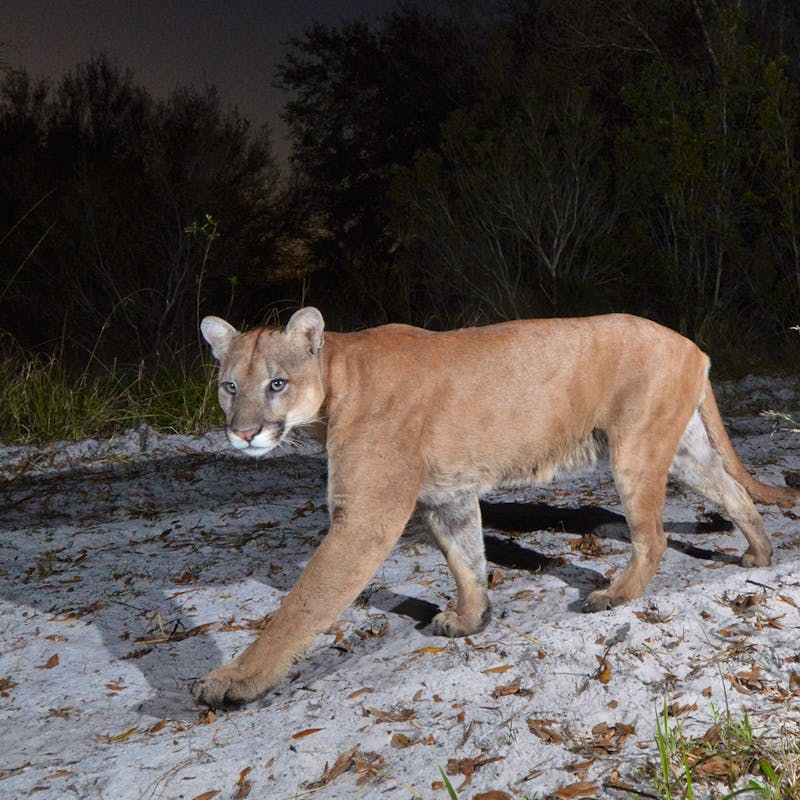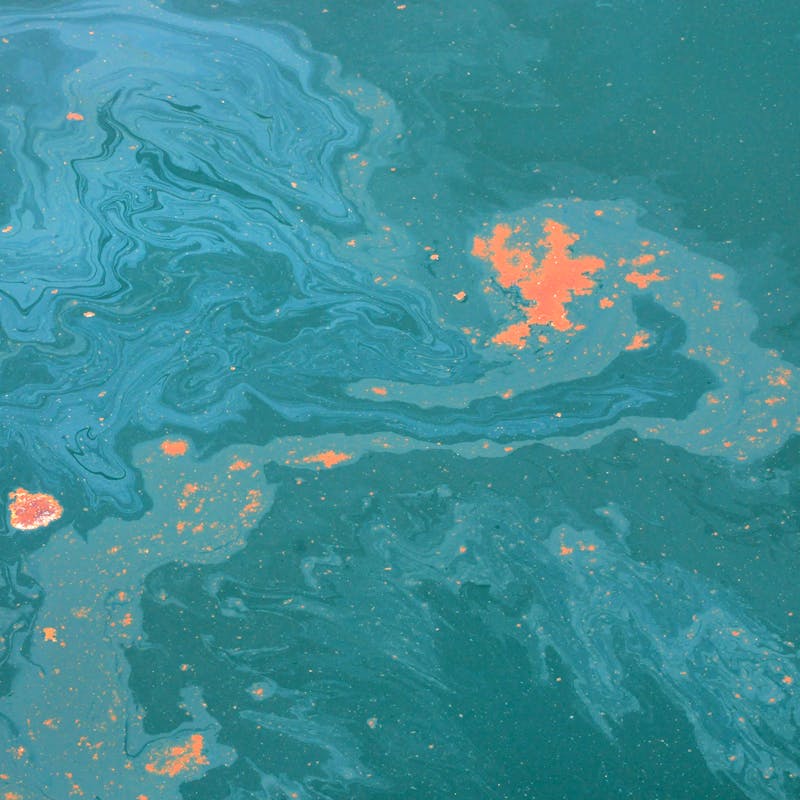
Hazmat trained workers and volunteers clean a pelican
Over the past two months, the world has heard news from the Gulf filtered through the government and corporations and the limited number of people, like myself, who have had a chance to see firsthand what is happening. Assessing a catastrophe is always difficult, but assessing it from afar is nearly impossible, especially when the main intermediaries are people and organizations with clear agendas. BP’s agenda is of course minimizing the damage to its profits and corporate brand. The Obama administration’s agenda leans toward minimizing the political damage, and ensuring that its plans to expand offshore drilling are still feasible. But the truth is, as easy as it is to blame and mistrust corporations and the government, ultimately, we have only ourselves to blame.
National Geographic photographer Joel Sartore, who traveled with us for a day on a boat trip in the Gulf, put it this way: “Don’t blame one oil company, blame all of us. We all want it, we all need it, we vote the price at the pump. We vote for politicians that promise us cheap gasoline. Is it cheap? Is it really that cheap? I don’t know, look around. We’ve gone to wars for oil. Now we get this. Is it cheap? I don’t think it’s $2.35 a gallon, I really don’t.”
We all have a hand in this and the only long-term answer is for each one of us to change how we live and what we expect from our government. At the moment, our government and certainly corporations like BP have no intention of real change. A few weeks ago I heard President Obama claim that the government would be reformed and readied to face and mitigate the next drilling disaster. Why is it a foregone conclusion that there will be a next disaster? It assumes that we do not have the capacity for change, that we cannot, or will not, rally to protect our world from the unhealthy industry that has gotten a choke hold on our economy and environment. I do believe that with the right kind of leadership and information we could change. But those two elements are so critical, and so far, lacking. So we can either wait for real leadership to emerge, or we can start to act ourselves and demand that our government act as well. Some people are already doing that, and in future blogs I will tell some of their stories, starting with the story of one of my heroes, Gabriella.

Photo courtesy of Adele Lanan
A Kool-Aid stand for dolphins
For the past two months, as I have been documenting the ongoing environmental tragedy in the Gulf for Defenders of Wildlife, I have been asked by so many people, “What can we do? We feel so helpless, outraged, sad, angry….” More than one reader told me that she would watch the news, and just sit and cry. I empathize with all these emotions. I have taken two trips to the Gulf with Defenders of Wildlife, and while the work is hard and the sights I have seen will haunt me forever, it is the time that I am not there that I find hardest to deal with. In the weeks that fall between and after these trips, I feel a constant anxiety quietly simmering beneath every moment of my day. This feeling of helplessness, of standing by while someone I love is brutally attacked, moment by moment, day after day. It can be debilitating. Luckily, there are people who show great leadership at times like these. I have the fortune of knowing one such person and benefiting from her example. She knew I was working in the Gulf on behalf of wildlife, but she didn’t bother to ask me what she could do. Instead she thought about it, analyzed her abilities and income, and figured out the best step she could take to help the wildlife of the Gulf. She opened a Kool-Aid stand and started raising money for Defenders of Wildlife.
It is easy to despair in life. It’s easier still when your whole working life is geared toward trying to help wildlife and you spend most of it watching pelican babies smothered in oil while people drive SUVs to the grocery store. At any given moment the pain in your head from banging it against a brick wall can begin to overwhelm. But then you get a call from your mother-in-law, who reports that your 8-year-old niece has begun to raise money for the wildlife of the Gulf and she wants to know who would be a good organization to give it to.
Sigh. Way to go Gabriella.
Now comes the time for the great and beautiful irony of this situation. About four years ago, my partner, Bill, and I donated to Defenders of Wildlife and got a stuffed animal humpback whale for Gabriella (in their wildlife adoption program), who was four at the time. Rather than wrap it in some odd amorphous packaging, we put the whale in an old box that used to contain a lamp. We figured it would be fun to throw her off-track about the package’s true contents. We don’t have kids, a fact that the following story makes quite obvious. About half way through Christmas present opening, Gabriella pulled the paper off our present and her face fell. She looked up at us, her adorable face stricken. Her eyes narrowed and without a word she asked us, ‘what kind a friggin idiot gives a four year old a lamp?’ (I pointed at Bill). We shook our heads furiously, no! no! that’s not what it is, keep opening. So she persevered and when she pulled the snuggly, fluffy leviathan from the lamp box, started to scream in terror. We were confused, and, as the only members of the family to live outside of the Midwest, guilt-ridden that we had haplessly ruined Christmas. Our fears were confirmed when Gabriella was put into time-out for not calming down and stopping to hate on us. Thanks a lot Defenders of Wildlife.
Not long after that, we learned that she had just seen a show about sharks, and had confused our gift with a shark. She apparently believed that we had been monitoring her nightmares so that we could buy her the one thing that would terrify her the most in the whole world.
In the following months and years, Gabriella began to appreciate her whale, and in fact began to gravitate towards wildlife in general. So much so that she has started writing her own books about dolphins and whales. And last Christmas she presented us with a signed framed print she had drawn of a dolphin. Behind her back, her grandma shared with us a paragraph she had written in school at age seven. It read: “After college I will change the world by helping the polar bears. Dolphins are also being killed by people. I will do everything I can to help.”
And rather than wait until she is out of college, when she saw that dolphins were in trouble in the oil coated Gulf, she opened a Kool-Aid stand.

Surveying a beach
When do we lose the notion that what we do matters to the world? I must admit, I feel it slipping away all the time. Time, maybe that’s it. The older we get, the more we gain a sense of our own helplessness. But are we really, helpless? What if Gabriella raises $100 and that money goes to support someone walking the halls of Congress for Defenders, demanding change in our energy policy. What if another person decided to walk those halls themselves, rather than giving money? And another decides to move into a smaller house so that they are using fewer fossil fuels and reducing their carbon footprint? And another decides to have only one child to reduce overpopulation in the world, or perhaps adopt? And another decides to stop driving to work? The point is we can all do something. And if we did all do something, just something meaningful, then what Gabriella is doing could be multiplied a billion-fold. Back in the 80s there was a film called the Breakfast Club, in which one of the main characters, a high school girl, says, “When you get older, your heart dies.” Now that I’m older, I can see that it isn’t your heart that dies over time, but your faith. Faith in the world, other people, but mostly yourself, and your ability to make a difference in a world where problems are so huge and a single person so small. So we look for leaders who can make problems seem smaller. But in the end, that never works for very long because the problems are inside all of us. We cannot wait for a leader to lead us out of this. We need instead a groundswell of Gabriella’s.
Postscript: Gabriella raised $68, which is like $1000 to her. It’s on its way to Defenders. In addition to the support it will give to good programs for protecting Gulf wildlife, it has given Gabriella, and the other kids that helped her with the project something more. Her grandma told me she has been able to use the project as a catharsis. Both she and her cousin Jackson had been having trouble sleeping, so disturbed were they by the situation we had put wildlife in. (Jackson was lying awake nights trying to engineer a contraption to stop the oil.) Knowing she has done something to help, has helped Gabriella and her cohorts rest a little easier. Taking action of some sort can have the same healing effects for all of us, we just have to figure out the best way we personally can help.
And it brings to mind a well known Native American saying: We don’t inherit the earth from our ancestors, we borrow it from our children.
Learn what you can do to help wildlife impacted by the Gulf oil disaster.






Follow Defenders of Wildlife
facebook bluesky twitter instagram youtube tiktok threads linkedin